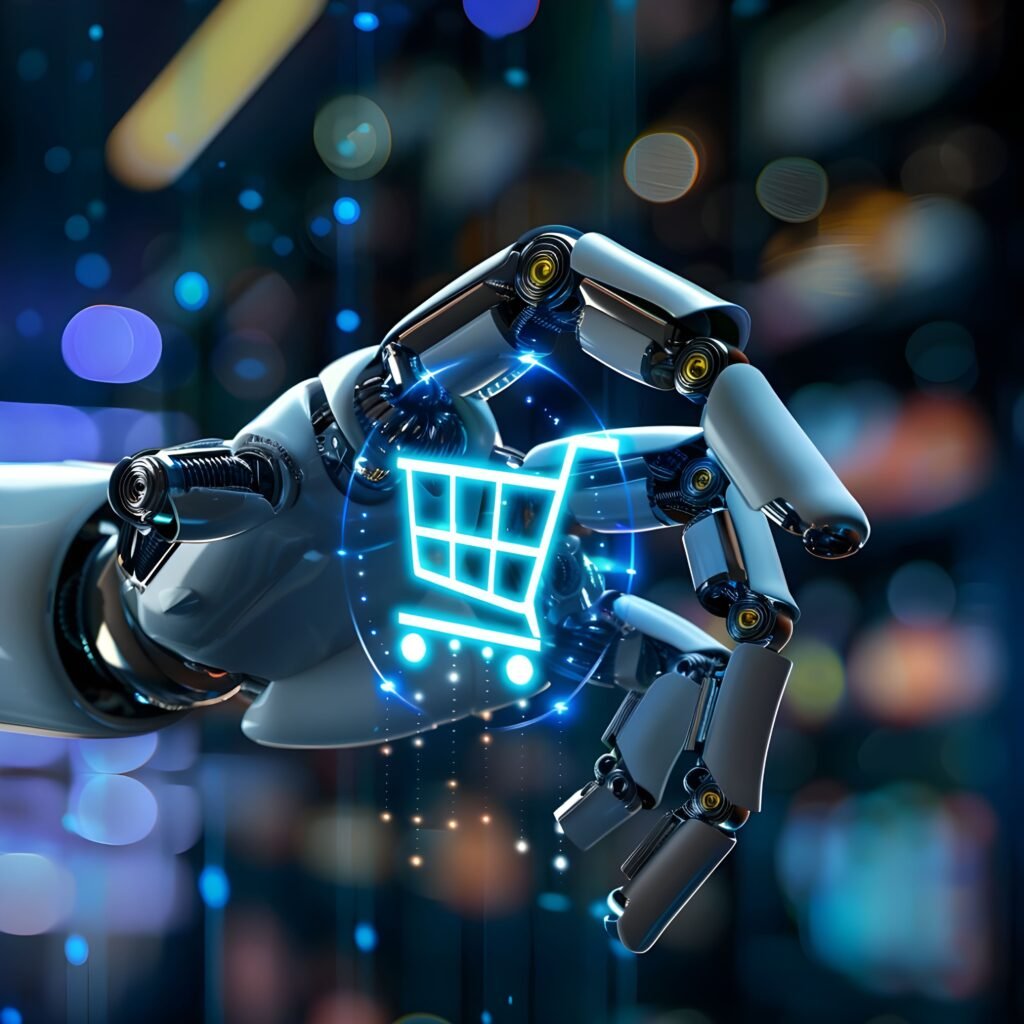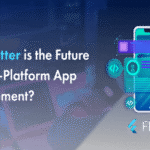AI DevelopmentAI in E-commerce: How AI is Transforming Online Shopping & Boosting Sales

Table of Contents
Why AI is the Future of Online Shopping
1. Rising Consumer Expectations
Modern shoppers demand faster, more intuitive, and highly personalized shopping experiences. AI helps brands keep up with consumer demands by:
- Providing 24/7 AI-powered customer support.
- Offering hyper-personalized recommendations.
- Reducing cart abandonment with smart reminders.
Example: Amazon uses AI-powered personalization to drive 35% of its total revenue by recommending relevant products based on past purchases and browsing behavior.
2. AI Automates Business Operations
AI helps e-commerce businesses automate repetitive tasks such as inventory tracking, fraud detection, and chatbot-based customer support. Key benefits include:
- Automated inventory management ensures real-time stock updates.
- AI-powered fraud detection reduces fraudulent transactions.
- AI-driven product tagging improves catalog accuracy.
Example: Walmart’s AI-driven supply chain system predicts demand and restocks inventory automatically, minimizing stock shortages and overstocking.
3. AI-Driven Marketing & Retargeting
AI helps brands retarget customers with personalized marketing campaigns, ensuring potential buyers return to complete their purchases.
- Dynamic ad retargeting helps re-engage lost visitors.
- AI-powered email campaigns personalize promotions.
- Sentiment analysis AI fine-tunes marketing messages.
Example: Starbucks uses AI-driven marketing automation to send customized offers based on purchase history, boosting repeat purchases.
4. AI-Powered Product Discovery
AI makes product discovery more seamless with:
- Visual search engines (like Pinterest Lens & Google Lens).
- Voice search shopping (Alexa, Google Assistant).
- Predictive search suggestions for a smoother shopping experience.
Example: IKEA uses AI-driven augmented reality (AR) to let customers visualize furniture in their homes before making a purchase.
5. AI in Customer Retention & Loyalty Programs
AI-powered loyalty programs reward customers for engagement and repeat purchases.
- AI tracks purchase behavior to recommend loyalty rewards.
- Automated discount strategies optimize offers for high-value customers.
- AI-powered surveys gather real-time customer feedback.
Example: Sephora’s AI-driven Beauty Insider Program provides personalized discounts and promotions, boosting brand loyalty.
6. AI in Customer Feedback & Sentiment Analysis
AI analyzes customer feedback from reviews, social media, and support tickets to understand customer sentiment.
- AI categorizes customer complaints for faster resolutions.
- Machine learning predicts negative trends before they escalate.
- Chatbots gather customer satisfaction data after support interactions.
Example: Coca-Cola uses AI-powered sentiment analysis to monitor brand mentions on social media and improve customer experience.
Case Studies: AI Success Stories in E-commerce
Case Study 1: AI-Powered Personalization at ASOS
Challenge: Low engagement and abandoned carts.
Solution: AI-driven product recommendations & personalized promotions.
Result: Conversion rates increased by 35%, and average order value rose by 20%.
Case Study 2: AI Chatbots Reducing Customer Support Costs at Sephora
Challenge: High volume of customer inquiries.
Solution: AI-powered chatbot for product recommendations and FAQs.
Result: Support response time reduced by 40%, increasing customer retention.
Case Study 3: AI-Powered Dynamic Pricing Boosts Amazon's Profits
Challenge: Price fluctuations and competitor adjustments.
Solution: AI-driven dynamic pricing to adjust product prices in real time.
Result: Increased sales by 25%, boosting profitability.
Conclusion: Future-Proof Your E-commerce Business with AI
Artificial Intelligence is no longer optional in e-commerce—it’s a requirement for brands that want to stay ahead of the competition. AI-powered personalization, chatbots, automation, and pricing strategies are reshaping how consumers shop online.
✔ E-commerce brands that adopt AI-driven solutions will:
✔ See higher conversion rates
✔ Improve customer retention
✔ Optimize business operations
✔ Reduce operational costsAre you ready to scale your ecommerce store with AI?
Get a Free AI Consultation Today!
FAQs: Everything You Need to Know About AI in E-commerce
1. How does AI improve e-commerce?
AI enhances personalization, automates pricing, and provides smart customer service through chatbots.
2. What is the best AI tool for e-commerce?
Some top AI-powered e-commerce tools include Google Cloud AI, Shopify AI, and Drift AI.
3. How do AI-powered chatbots help in e-commerce?
AI chatbots automate customer service, handle FAQs, and reduce support costs.
4. How does AI improve fraud detection?
AI analyzes transaction patterns to detect and block fraudulent activities in real time.
5. Can AI optimize inventory management?
Yes, AI predicts demand patterns and automates real-time inventory tracking.
6. How does AI improve product recommendations?
AI analyzes browsing history and shopping behavior to suggest relevant products.
7. What role does AI play in e-commerce marketing?
AI helps brands retarget users with personalized ads and email campaigns.
8. What is AI-powered visual search?
AI allows customers to search for products using images instead of text.
9. How does AI impact pricing strategies?
AI-powered dynamic pricing adjusts product prices in real time based on demand.
10. How can I integrate AI into my e-commerce store?
Hire an AI-focused mobile app development company to integrate AI seamlessly.




